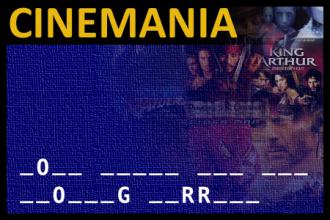CINEMANIA: Guess the movie title
A botched card game in London triggers four friends, thugs, weed-growers, hard gangsters, loan sharks and debt collectors to collide with each other in a series of unexpected events, all for the sake of weed, cash and two antique shotguns. Film was made in 1998.Correct answers: 54
The first user who solved this task is Eric Newton.
#brainteasers #movie #film #cinemania #games

